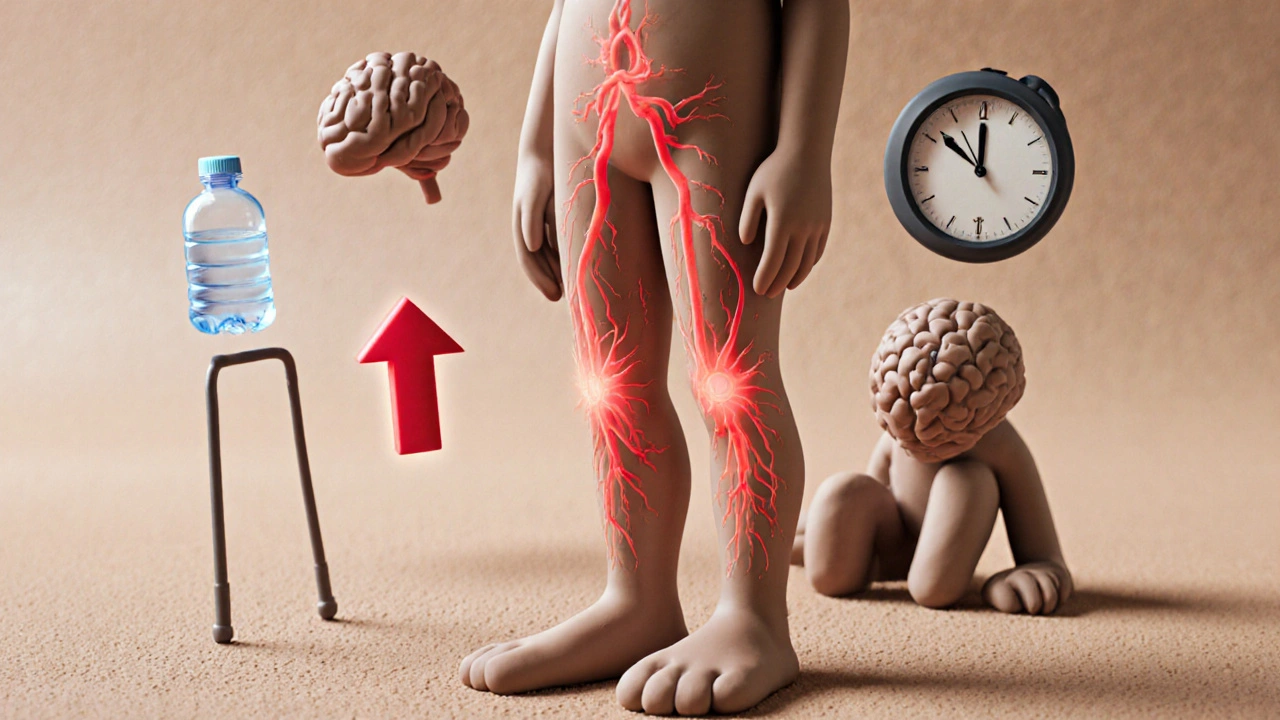Orthostatic Hypotension: Causes, Risks, and What You Can Do
When you stand up too fast and feel like the room is spinning, you might be dealing with orthostatic hypotension, a drop in blood pressure upon standing that causes dizziness or fainting. Also known as postural hypotension, it’s not just an annoyance—it’s a signal your body’s blood pressure system isn’t responding fast enough. This isn’t normal aging. It’s your autonomic nervous system failing to tighten blood vessels and boost heart rate quickly enough to keep blood flowing to your brain.
What makes it worse? Many common medications can trigger it. Blood pressure drugs, diuretics, antidepressants like amitriptyline, and even some antibiotics, such as those used for infections, that affect fluid balance or nerve signaling can play a role. If you’re on warfarin or other blood thinners, you’re already managing complex interactions—orthostatic hypotension can sneak in as a side effect you didn’t expect. It also shows up in people with nerve damage from diabetes, Parkinson’s, or long-term alcohol use. Even simple things like dehydration, heat, or skipping meals can push you over the edge.
It’s not just about standing up too fast. This condition connects directly to heart health, medication safety, and how your body manages fluids and nerves. People with familial hypercholesterolemia, a genetic condition requiring long-term lipid-lowering therapy, often take multiple drugs that can interact and worsen this drop in pressure. The same goes for those using SSRIs, antidepressants that alter serotonin levels and can interfere with blood vessel control. Even something as basic as nutritional anemia from low iron or B12 can reduce blood volume and make dizziness worse.
You won’t find a one-size-fits-all fix. Some people need more salt and water. Others need to adjust their meds. Some require testing for nerve damage or heart rhythm issues. The posts below cover real cases—how certain drugs like doxycycline or cefaclor can trigger it, how genetic differences in drug metabolism affect your risk, and what steps actually help people feel stable when standing up. You’ll see what works, what doesn’t, and how to talk to your doctor about it without sounding paranoid.

